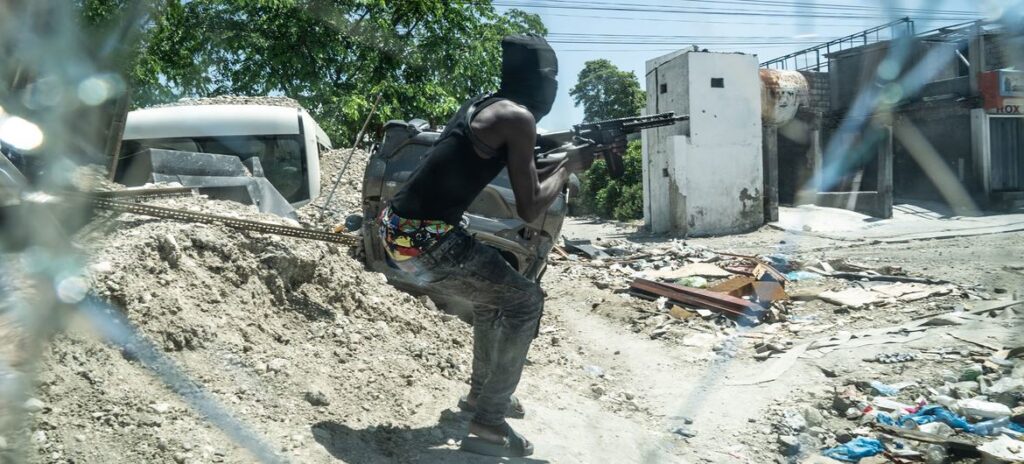Ah, Haiti—the Caribbean paradise where the sun shines, the beaches beckon, and the government watches idly as the nation spirals into anarchy. Let’s take a moment to applaud the Haitian authorities for their unparalleled commitment to doing absolutely nothing while gang leaders like Jimmy “Barbecue” Chérizier turn the country into their personal playgrounds.
Gangster’s Paradise: The Reign of Barbecue
Jimmy Chérizier, affectionately known as “Barbecue,” has solidified his reputation as Haiti’s most notorious gang leader. His latest claim to infamy? Orchestrating massacres that left over 180 innocent people dead in Port-au-Prince, targeting vulnerable populations, including elderly residents, under the guise of twisted superstitions.
The terror he unleashes isn’t confined to just bloodshed; it’s also economic and emotional. Entire neighborhoods are being razed, forcing Haitians—many of whom retired to their homeland for peace—to flee in desperation.
Forced Exodus: A Betrayal of Haiti’s Elderly
A particularly cruel twist of fate has been dealt to elderly Haitians. Many who returned to Haiti to spend their golden years in the country they love are now being driven out by gang violence. Their homes, often painstakingly built over decades, are being looted or destroyed, leaving them with nothing to return to.
For these retirees, the alternative is heartbreaking: forced to live in the United States—a nation where they can barely afford to survive. Struggling with the high cost of living, healthcare expenses, and often language barriers, they face a grim reality. The Haitian government’s inaction ensures that these elders are exiles in both spirit and circumstance.
Government Response: A Masterclass in Apathy
Faced with these atrocities, Haiti’s interim Prime Minister Alix Didier Fils-Aimé issued a predictable condemnation, calling the situation “unbearable cruelty.” He promised to “mobilize all forces” against the gangs—a statement as empty as the streets of Port-au-Prince at night.
It’s almost comical how the government continues to announce initiatives that are never implemented. Mobilizing forces? More like mobilizing excuses.
Airlines Flee, Government Sleeps
While Barbecue’s terror reigns unchecked, international airlines have shown more backbone than the Haitian government. American Airlines has indefinitely suspended flights to Haiti due to safety concerns, and JetBlue and Spirit Airlines followed suit after their planes were struck by gunfire.
For Haitians in the diaspora and international aid workers, the message is clear: don’t bother coming. Haiti is closed for business—permanently, it seems.
2025: The Only Way Is Up?
As we brace for 2025, one might wonder: can Haiti sink any lower? It’s a valid question, given that the country now feels like it’s scraping the bottom of every barrel. With no functioning government, no safe passage in or out, and a populace held hostage by gangs, the only direction left seems to be up—assuming that gravity still applies in this geopolitical nightmare.
A Nation Abandoned
Haiti’s ongoing collapse is a masterclass in how to abandon a country while pretending to govern. The elderly who once cherished their homeland are now exiles, the youth are hostages to fear, and the government has ceded the nation to gangs.
What’s left? A devastated people, a lawless land, and an international community that watches, bewildered, as Haiti’s tragedy unfolds. If there’s one thing the world can learn from Haiti, it’s this: when leadership fails, humanity suffers.
For now, the skies over Haiti are silent, the streets are empty, and hope is nowhere to be found. The question isn’t whether Haiti will recover—it’s whether anyone in power even cares to try.

